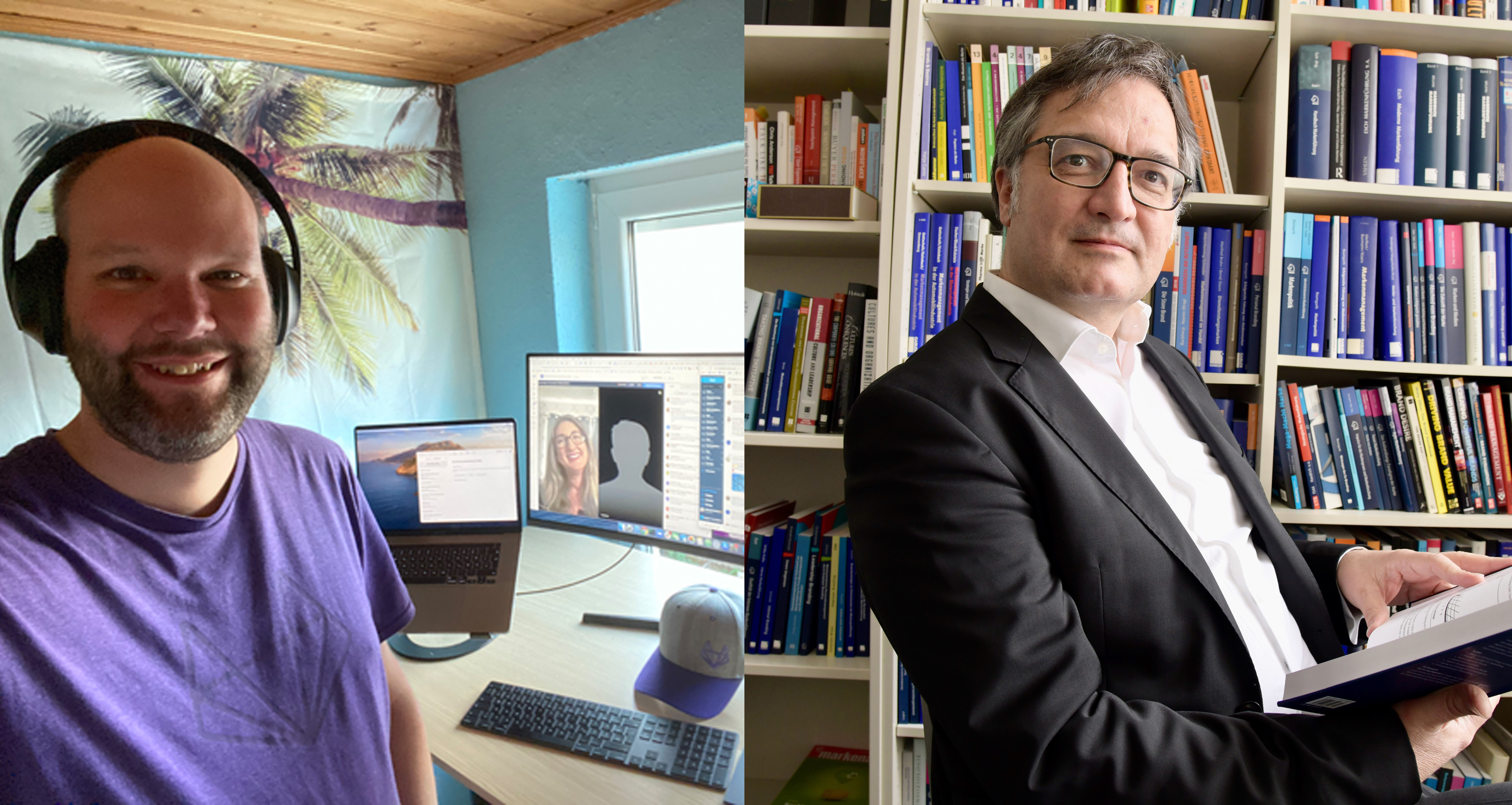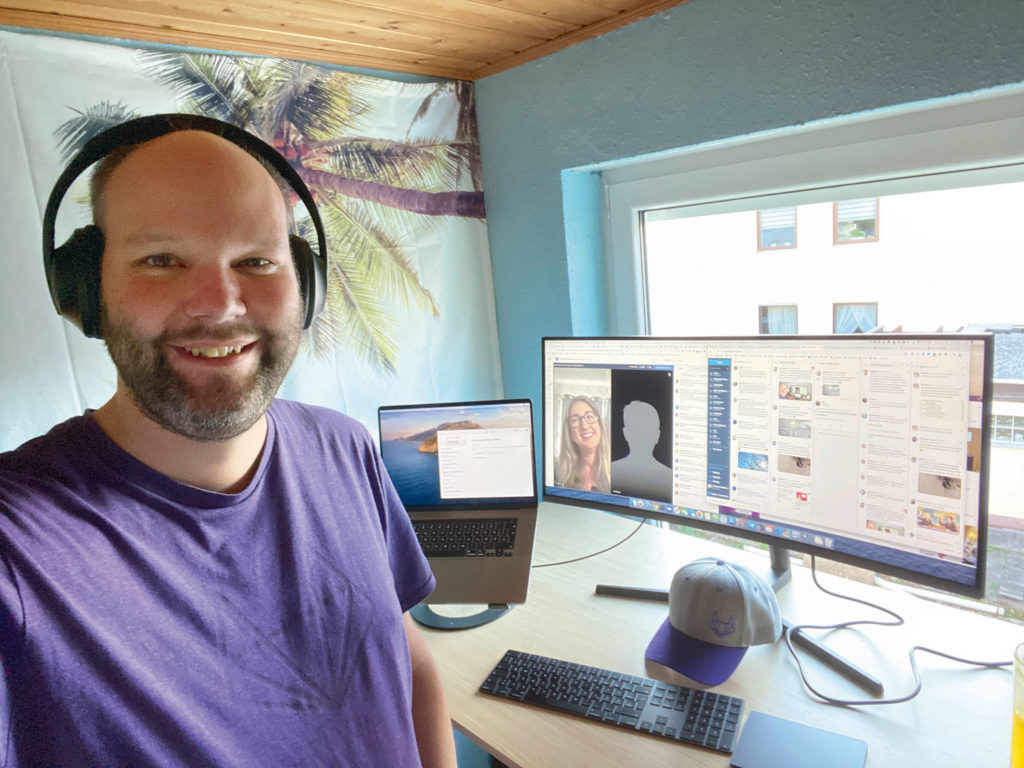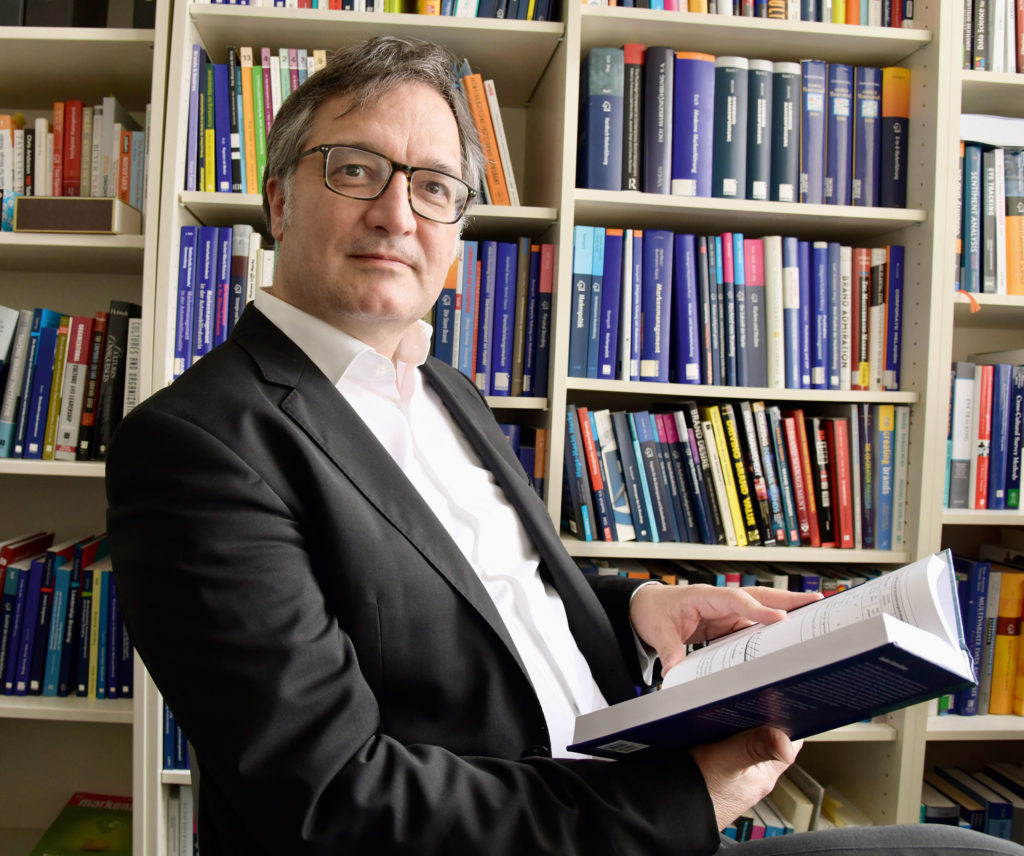One subject – two opinions. Remote work or office work?
By Helena Pumberger, 15.06.2021

Never before has the discussion about new ways of working and even the complete abandonment of the classic office been greater than in the current situation. Reason enough to capture two different opinions and experiences on this subject. Michael Friedrich has been working all-remote at the software company GitLab for a year. His counterpart is Prof Dr Carsten Baumgarth, university professor for marketing at the School of Economics and Law in Berlin.
Michael Friedrich:
When I started at GitLab a year ago, remote work was still something for the unconventional. I had already decided on this way of working before the pandemic and considered it a personal adventure: I want to work internationally so that I can discover the world anew. As a native of Linz, I have been living in the Nuremberg region for several years now. I love living close to nature and still being connected to the world. And that’s exactly what my work offers me. I’m a Developer Evangelist at GitLab, a platform for software developers, helping our community use GitLab and showing how it can be integrated with other technologies. From this I create blog posts, workshops and talks for international events. My employer does not have a permanent head office, employs around 1,300 people in 66 countries worldwide and has made remote working part of its DNA. I was very excited about this cumulative experience and was not disappointed.
To be truly productive, it is important for me to clearly separate my private life from my work, also in terms of space. I have created a feel-good atmosphere in my study: with a height-adjustable desk, ergonomic chair, good lighting and high-quality technical equipment, including a webcam and a large monitor. The advantage of an office at home is that you can surround yourself with personal things as you like. For me, it’s currently a Star Wars kit from Lego, which can also be seen in the background during video conferences.
What I really like about my job is the asynchronous work. Since my international colleagues live in different time zones, we use tools that make working together very efficient despite the time difference. We document everything – every thought, every meeting, every decision. This makes the overall communication more objective. No one is obliged to participate in endlessly long video conferences – everything is prepared in writing, the meeting is recorded. I can decide for myself if I want to attend, watch it later or not at all. In short: I am my own manager.
I exchange private information with colleagues through coffee chats. We are also given regular friends & family days off, as they know the dangers of the boundaries between work and home life becoming blurred. The other day I got to know Carlos through #do-not-be-strangers, a bot that randomly connects colleagues. When the pandemic is over, I really want to visit him in Mexico City. Of course, I miss the real social contacts, the real events with software developers and colleagues. I’m really looking forward to more analogue encounters, but remote working itself will remain the right thing for me for now.
Michael Friedrich is a Developer Evangelist at GitLab and works exclusively from home.
Carsten Baumgarth:
Ever since the coronavirus crisis, the (social) media, LinkedIn posts and clubhouse discussions have been overflowing with praise for working from home – autonomous working, less stress, higher productivity are just a few arguments repeatedly put forward (but are hardly empirically proven).
It may be, but doesn’t have to be!
After about eight weeks working full-time at home in March and April 2020, I was personally happy as a researcher to be allowed to use my office at the university again in compliance with the regulations in May. I have my peace and quiet there, a permanently set up and fully functional little studio for Zoom meetings with good light, sound and camera, my library, my little research lab (B*lab with eye tracking, robotics etc.), my art on the walls. Yes, I could also do all my teaching, administrative and some of my research work from home. But I don’t want to. The half-hour walk to the office ensures I get at least some exercise every day even with the gym closed and lockdown. The familiar office and B*Lab environment, perfectly equipped and inspiring for me, boosts my productivity, and the spatial separation between home and the office allows me to at least somewhat separate work and leisure, even though I am actually always (mentally) working as a researcher, but rarely perceive this as work or a burden.
You see, I also didn’t only work in the office before the lockdown, but in the café, park, at companies, in hotels, at home, on the train etc. I am in the very privileged position that I can almost always decide for myself when and where to work and what to work on. So I’m always looking for the places and contexts that feel best to me, and very often that is my office at the university. This will also be the case after the pandemic.
The only thing I cannot imagine and do not want at all for my team, my colleagues and my students is full-time working from home. How lonely, uninspiring, boring and frustrating a “working life” would be without real and human exchange.
I hope we get over the pandemic soon, don’t debate the office vs. working from home issue too dogmatically, and can be much more flexible and decide where we want to work ourselves. But please always with a large share of face-to-face!
Prof. Baumgarth is professor for brand management at the HWR Berlin (www.cbaumgarth.net) and since the pandemic also operator of the Instagram science channel “Brückenbau Marke – Wissenschaft trifft Praxis” (Building the bridge between brand science and brand practice” (https://www.instagram.com/prof.baumgarth/).






